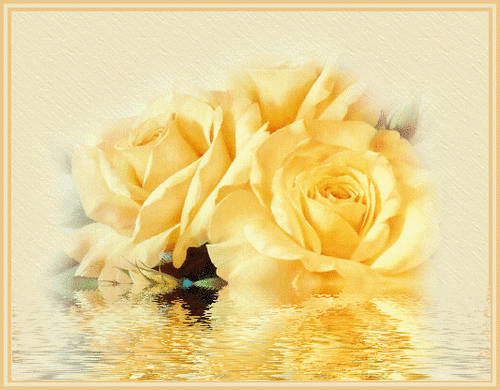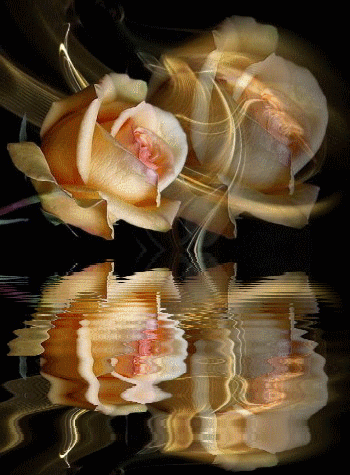-
Comment June 18, 2015
-
Rich or poor, young or old, human or animal
Comment June 18, 2015The Buddha said that rich or poor, young or old, human or animal, no being in this world can maintain itself in any single state for long. Everything experiences change and deprivation. this is a fact of life about which we can do nothing to remedy. But the Buddha said that what we can do is to contemplate the body and mind to see their impersonality, that neither of them is “me” nor “mine.” They have only a provisional reality. It’s like this house, it’s only nominally yours. You couldn’t take it with you anywhere. The same applies to your wealth, your possessions and your family — they’re yours only in name. they don’t really belong to you, they belong to nature. Now this truth doesn’t apply to you alone, everyone is in the same boat — even the Lord Buddha and his enlightened disciples. They differed from us only in one respect, and that was their acceptance of the way things are. They saw that it could be no other way. ~Ajahn Chah
-
Our real home
Comment June 18, 2015by Ajahn Chah
A talk addressed to an aging lay disciple approaching her death
Now determine in your mind to listen respectfully to the Dhamma. While I am speaking, be as attentive to my words as if it was the Lord Buddha himself sitting before you. Close your eyes and make yourself comfortable, composing your mind and making it one-pointed. Humbly allow the Triple Gem of wisdom, truth and purity to abide in your heart as a way of showing respect to the Fully Enlightened One.Today I have brought nothing of material substance to offer you, only the Dhamma, the teachings of the Lord Buddha. You should understand that even the Buddha himself, with his great store of accumulated virtue, could not avoid physical death. When he reached old age he ceded his body and let go of the heavy burden. Now you too must learn to be satisfied with the many years you’ve already depended on the body. You should feel that it’s enough.
Like household utensils that you’ve had for a long time — cups, saucers, plates and so on — when you first had them they were clean and shining, but now after using them for so long, they’re starting to wear out. Some are already broken, some have disappeared, and those that are left are wearing out, they have no stable form. And it’s their nature to be that way. Your body is the same… it’s been continually changing from the day you were born, through childhood and youth, until now it’s reached old age. You must accept this. The Buddha said that conditions, whether internal, bodily conditions or external conditions, are not self, their nature is to change. Contemplate this truth clearly.
This very lump of flesh lying here in decline is reality. [5] The facts of this body are reality, they are the timeless teaching of the Lord Buddha. The Buddha taught us to contemplate this and come to terms with its nature. We must be able to be at peace with the body, no matter what state it is in. The Buddha taught that we should ensure that it’s only the body that is locked up in jail and not the mind be imprisoned along with it. Now as your body begins to run down and wear out with age, don’t resist, but also don’t let your mind deteriorate along with it. Keep the mind separate. Give energy to the mind by realizing the truth of the way things are. The Lord Buddha taught that this is the nature of the body, it can’t be any other way. Having been born it gets old and sick and then it dies. This is a great truth that you are presently witnessing. Look at the body with wisdom and realize this.
If your house is flooded or burnt to the ground, whatever the threat to it, let it concern only the house. If there’s a flood, don’t let it flood your mind. If there’s a fire, don’t let it burn your heart. Let it be merely the house, that which is outside of you, that is flooded or burned. Now is the time to allow the mind to let go of attachments.
You’ve been alive a long time now. Your eyes have seen any number of forms and colors, your ears have heard so many sounds, you’ve had any number of experiences. And that’s all they were — experiences. You’ve eaten delicious foods, and all those goods tastes were just good tastes, nothing more. The bad tastes were just bad tastes, that’s all. If the eye sees a beautiful form that’s all it is… a beautiful form. An ugly form is just an ugly form. The ear hears an entrancing, melodious sound and it’s nothing more than that. A grating, discordant sound is simply that.
The Buddha said that rich or poor, young or old, human or animal, no being in this world can maintain itself in any single state for long. Everything experiences change and deprivation. this is a fact of life about which we can do nothing to remedy. But the Buddha said that what we can do is to contemplate the body and mind to see their impersonality, that neither of them is “me” nor “mine.” They have only a provisional reality. It’s like this house, it’s only nominally yours. You couldn’t take it with you anywhere. The same applies to your wealth, your possessions and your family — they’re yours only in name. they don’t really belong to you, they belong to nature.
Now this truth doesn’t apply to you alone, everyone is in the same boat — even the Lord Buddha and his enlightened disciples. They differed from us only in one respect, and that was their acceptance of the way things are. They saw that it could be no other way.
So the Buddha taught us to probe and examine the body, from the soles of the feet up to the crown of the head, and then back down to the feet again. Just take a look at the body. What sort of things do you see? Is there anything intrinsically clean there? Can you find any abiding essence? This whole body is steadily degenerating. The Buddha taught us to see that it doesn’t belong to us. It’s natural for the body to be this way, because all conditioned phenomena are subject to change. How else would you have it? In fact there is nothing wrong with the way the body is. It’s not the body that causes suffering, it’s wrong thinking. When you see things in the wrong way, there’s bound to be confusion. Continue reading
-
Wishing you the sweetest day
Comment June 17, 2015There’s no yesterday, time took it away. Tomorrow nobody knows, it may not be mine.
But I have today, to wish you the sweetest day. Strong people stand up for themselves.
But the strongest people stand up for others. Don’t try to force your life to be perfect.
Live your life and discover the perfectness in everyday. Don’t stress about how your life
will turn out. Just take a breath and go along for the ride. ~Santabanta sma -
Waiting for you, always
Comment June 17, 2015 -
Kitties just woke up
Comment June 17, 2015 -
Best friends playing together
Comment June 17, 2015 -
The heart that knows
Comment June 17, 2015 -
If we don’t have wisdom
Comment June 17, 2015If we don’t have wisdom everything round us will be a source of suffering. If we are wise these things will lead us out of suffering. Eyes, ears, nose, tongue, body and mind… Eyes aren’t necessarily good things, you know. If you are in a bad mood just seeing other people can make you angry and make you lose sleep. Or you can fall in love with others. Love is suffering, too, if you don’t get what you want. Love and hate are both suffering, because of desire. Wanting is suffering, wanting not to have is suffering. Wanting to acquire things… even if you get them it’s still suffering because you’re afraid you’ll lose them. There’s only suffering. How are you going to live with that? You may have a large, luxurious house, but if your heart isn’t good it never really works out as you expected.
Therefore, you should all take a look at yourselves. Why were we born? Do we ever really attain anything in this life? In the countryside here people start planting rice right from childhood. When they reach seventeen or eighteen they rush off and get married, afraid they won’t have enough time to make their fortunes. They start working from an early age thinking they’ll get rich that way. They plant rice until they’re seventy or eighty or even ninety years old. I ask them. “From the day you were born you’ve been working. Now it’s almost time to go, what are you going to take with you?” They don’t know what to say. All they can say is, “Beats me!” We have a saying in these parts, “Don’t tarry picking berries along the way… before you know it, night falls.” Just because of this “Beats me!” They’re neither here nor there, content with just a “beats me”… sitting among the branches of the berry tree, gorging themselves with berries… “Beats me, beats me…” ~Ajahn Chah
-
Why are we here?
Comment June 17, 2015
by Venerable Ajahn ChahThis Rains Retreat I don’t have much strength, I’m not well, so I’ve come up to this mountain here to get some fresh air. People come to visit but I can’t really receive them like I used to because my voice is just about had it, my breath is just about gone. You can count it a blessing that there is still this body sitting here for you all to see now. This is a blessing in itself. Soon you won’t see it. The breath will be finished, the voice will be gone. They will fare in accordance with supporting factors, like all compounded things. The Lord Buddha called it khaya vayam, the decline and dissolution of all conditioned phenomena.
How do they decline? Consider a lump of ice. Originally it was simply water… they freeze it and it becomes ice. But it doesn’t take long before it’s melted. Take a big lump of ice, say as big as this tape recorder here, and leave it out in the sun. You can see how it declines, much the same as the body. It will gradually disintegrate. In not many hours or minutes all that’s left is a puddle of water. This is called khaya vayam, the decline and dissolution of all compounded things. It’s been this way for a long time now, ever since the beginning of time. When we are born we bring this inherent nature into the world with us, we can’t avoid it. At birth we bring old age, sickness and death along with us.
So this is why the Buddha said khaya vayam, the decline and dissolution of all compounded things. All of us sitting here in this hall now, monks, novices, laymen and laywomen, are without exception “lumps of deterioration.” Right now the lump is hard, just like the lump of ice. It starts out as water, becomes ice for a while and then melts again. Can you see this decline in yourself? Look at this body. It’s aging every day… hair is aging, nails are aging… everything is aging!
You weren’t like this before, were you? You were probably much smaller than this. Now you’ve grown up and matured. From now on you will decline, following the way of nature. The body declines just like the lump of ice. Soon, just like the lump of ice, it’s all gone. All bodies are composed of the four elements of earth, water, wind and fire. A body is the confluence of earth, water, wind, and fire, which we proceed to call a person. Originally it’s hard to say what you could call it, but now we call it a “person.” We get infatuated with it, saying it’s a male, a female, giving it names, Mr., Mrs., and so on, so that we can identify each other more easily. But actually there isn’t anybody there. There’s earth, water, wind and fire. When they come together in this known form we call the result a “person.” Now don’t get excited over it. If you really look into it there isn’t anyone there.
That which is solid in the body, the flesh, skin, bones and so on, are called the earth element. Those aspects of the body which are liquid are the water element. The faculty of warmth in the body is the fire element, while the winds coursing through the body are the wind element.
At Wat Ba Pong we have a body which is neither male or female. It’s the skeleton hanging in the main hall. Looking at it you don’t get the feeling that it’s a man or a woman. People ask each other whether it’s a man or a woman and all they can do is look blankly at each other. It’s only a skeleton, all the skin and flesh are gone.
People are ignorant of these things. Some go to Wat Ba Pong, into the main hall, see the skeletons… and then come running right out again! They can’t bear to look. They’re afraid, afraid of the skeletons. I figure these people have never seen themselves before. Afraid of the skeletons… they don’t reflect on the great value of a skeleton. To get to the monastery they had to ride in a car or walk… if they didn’t have bones how would they be? Would they be able to walk about like that? But they ride their cars to Wat Ba Pong, go into the main hall, see the skeletons and run straight back out again! They’ve never seen such a thing before. They’re born with it and yet they’ve never seen it. It’s very fortunate that they have a chance to see it now. Even older people see the skeletons and get scared… What’s all the fuss about? This shows that they’re not at all in touch with themselves, they don’t really know themselves. Maybe they go home and still can’t sleep for three or four days… and yet they’re sleeping with a skeleton! They get dressed with it, eat food with it, do everything with it… and yet they’re scared of it. Continue reading


















